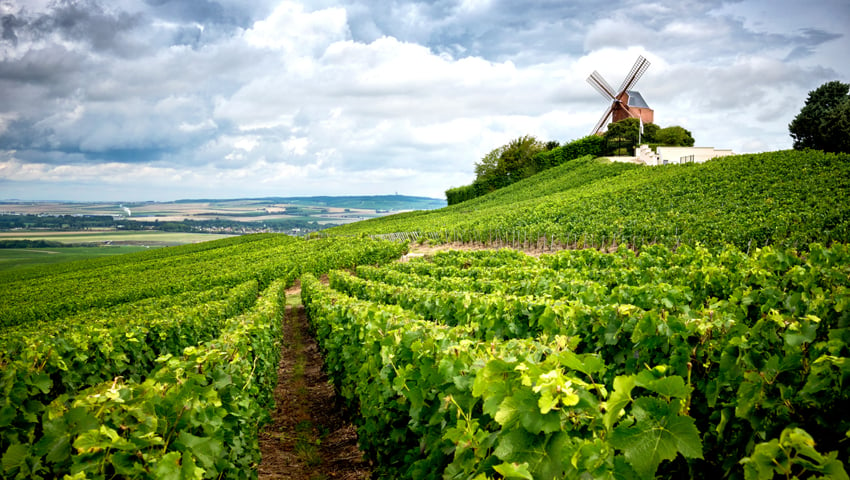A new report marks the end of seven months of debate between stakeholders (including green NGOs, consumer groups, farmers’ unions and industry actors) to reach a consensus on the future of EU agriculture.
The outcome is a collective call for change, stating clearly that “business-as-usual is not an option”.
It also sets out concrete recommendations including “substantially increasing funding” for nature and climate-friendly farming, with a focus on results rather than practices (going well beyond existing environmental and climate legislation), “targeting income support only at the active farmers who need it most” while moving “away from area-based payments”, and “supporting trends towards rebalancing diets towards more plant based proteins.”
The Strategic Dialogue was announced by EU Commission President Ursula von der Leyen in September 2023 and started just as farmer protests were spreading across Europe and scientists issued yet another warning of the need for urgent action to address the rapidly growing climate risks facing EU food and farming.
Von der Leyen said, “I warmly congratulate the members of the Strategic Dialogue for their important work. The outcome of this Strategic Dialogue shows that it’s possible to move beyond a polarised debate and create trust among very diverse stakeholders. The Commission will now take a careful look at their ideas. We all want a thriving food and farming sector across our continent, that rewards our farmers, citizens and precious natural heritage. With this report, we have a very solid foundation for the development of a new vision for food and farming in Europe. As we go forward we should keep the good spirit, energy and the relationships forged during the Strategic Dialogue.”
European Environmental Bureau
The European Environmental Bureau (EEB) has described the EU’s agri-food system as the single largest cause of nature loss in the EU, as well as being associated with human rights abuses and driving an epidemic of diet-related diseases.
Faustine Bas-Defossez, Director for Nature, Health and Environment at the EEB, said, “Today marks a pivotal moment for the future of EU food and farming. This report shows that there is broad consensus on the urgent need to transform how we produce and consume food to respect planetary boundaries.
“This starts with an unequivocal call to overhaul the EU’s archaic farm subsidies policy to focus precious public funds on rewarding nature – and climate-friendly farming outcomes and redirecting funds to support the farmers in genuine need, which would end decades of wasteful, unfair subsidies that benefitted the largest farms at the expense of everyone else and the environment.
“Now we call on the President of the European Commission to uphold her promises and incorporate the collective recommendations into her Vision for Agriculture and Food within the first 100 days ensuring urgent action that is truly fit for purpose.”
While the compromise report falls short on some aspects – for example containing only timid language when addressing the need to move away from industrial animal farming – the EEB calls the report “a leap in the right direction and consistent with the direction of travel set out in the Green Deal and Farm to Fork Strategy.”
Copa and Cogeca
European farmers’ organisation Copa and Cogeca also welcomed the report, which they said attempted to address all major aspects in the agricultural and agri-food sectors.
Copa and Cogeca particularly welcomed the consensus on recognising agriculture and food as strategic sectors for Europe, the imperative need of ensuring food security, and the commitment to competitive sustainability.
Copa President Christiane Lambert said, “This report should be viewed as the beginning of a constructive process that will lead to a more balanced, and strategic vision of agriculture under Ursula von der Leyen. We must continue the dialogue and involve the European Parliament and Council. Many stakeholders will share their views on this report in the coming days and weeks, and Commission must listen to them.”
Meanwhile, Cogeca President Lennart Nilson said, “I am particularly glad that the strategic dialogue recognises the important role that our cooperative enterprises play in strengthening the farmer in the value chain and boosting the sustainable competitiveness of our sectors.”
ARC2020
The Agricultural and Rural Convention – ARC2020 – summarised the ten key takeaways as follows:
- Move CAP towards viability and income and away from area-based payments
- Create an Agricultural Just Transition Fund
- Create Nature Restoration Fund
- Create a European Observatory of Agricultural Land (and no net land take by 2050)
- Create a harmonised benchmarking system for sustainability
- Take a more territorial focus for policy formation
- Incentivise sustainable and healthy diets, including plant-based proteins
- Revise public procurement away for cheapest towards best value options
- Establish a “European Rural Contact” and “rural test” for big budget changes such as the MFF
- Promote locally adapted and peasant farms including via strengthened and new short supply chains
An EEB spokesperson concluded, “There can be no further delay, this is now a clear and collective call stemming from all actors of the food chains and civil society to politicians across Europe to act now, and rapidly, by constructing the necessary policies to drive a just transition towards genuine social, economic and environmental sustainability in the food and farming sector.”
